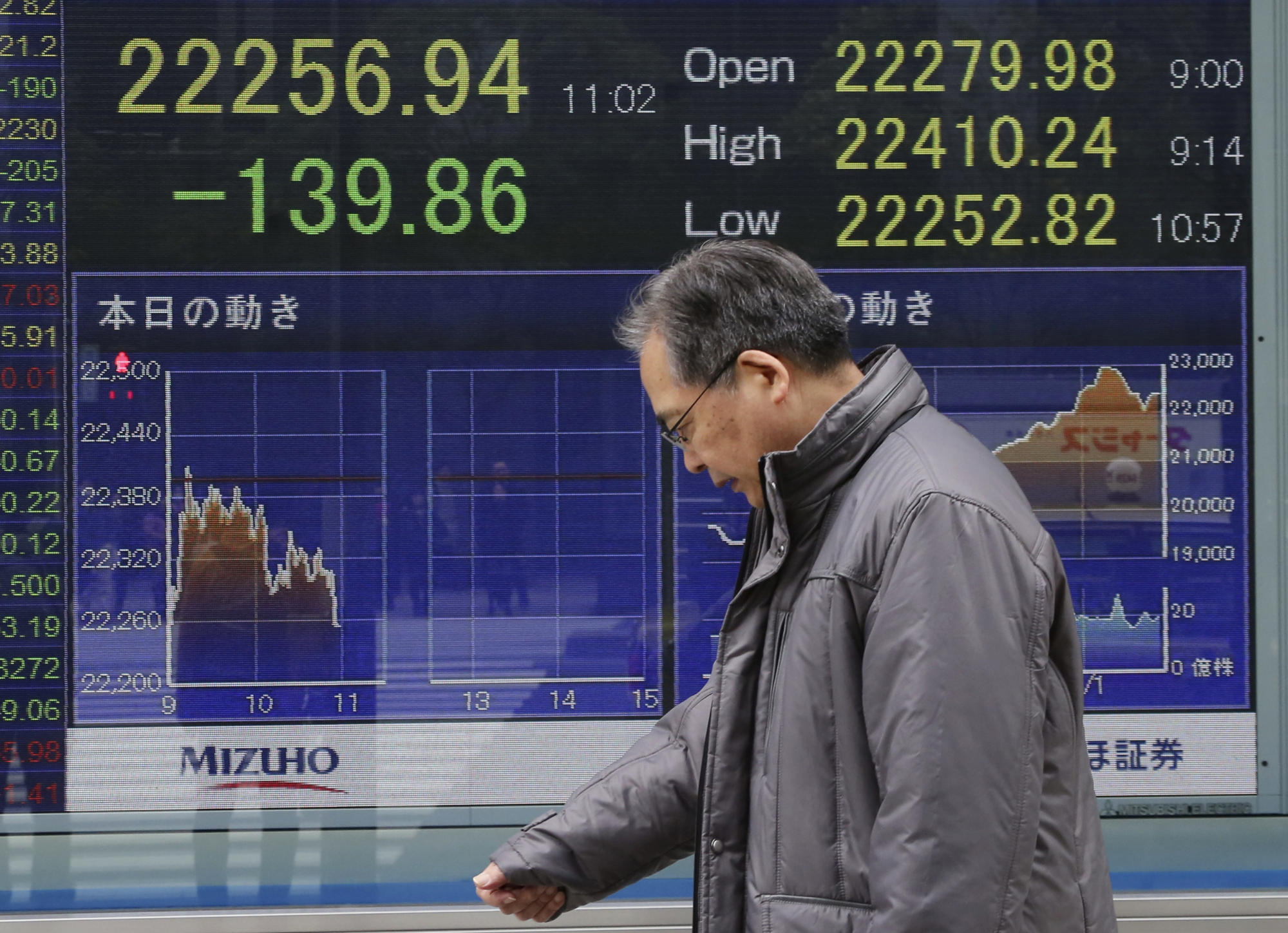Bryan Goh says there's no clear reason why Japanese stocks suddenly started falling after a turbocharged rally sent them to their highest in a quarter century.
What the chief investment officer of Bordier & Cie in Singapore will say is that volatility was so low for so long that it's hardly surprising the calm finally broke. Yoshinori Shigemi of JPMorgan Asset Management Co. in Tokyo takes a similar line. He doesn't know where the 225-issue Nikkei average will go from here, but he expects the gauge's once-smooth road to get a lot more bumpy.
Turbulence has returned in Japanese stocks after months of calm. The Nikkei 225 started swinging wildly Nov. 8, a day after closing at its highest since January 1992, and spent the next five days in a tailspin. Then the measure started to recover, although even that was tempered Friday when it pared most of what was once a 1.8 percent gain. When the music finally ended, the Nikkei had posted its first weekly decline in 10 weeks.



















With your current subscription plan you can comment on stories. However, before writing your first comment, please create a display name in the Profile section of your subscriber account page.